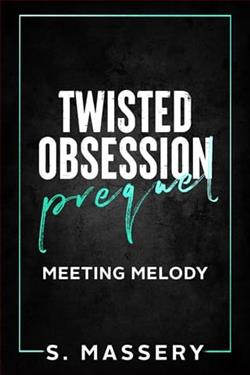Page 9 of French Kiss
We also couldn’t be allowed to think we knew anything until the attendings decided we knew it. So we’d meet for rounds each morning and get quizzed on the history and physical-exam details of every patient on a particular floor. We were expected to get there on time and read the charts. We were expected to know everything and to anticipate questions before the attendings thought of them.
Because of my habit of getting to the hospital early each day, I usually had time to prepare. I could scoot down the hallways, looking through the charts and making notes on my own yellow pad, writing down the most significant changes in patients’ health and anticipating the questions I’d need to answer.
Some doctors treated rounds as a perfunctory time to get the details they’d need to move forward with patient care. Their questions were all business, and unless they didn’t understand a conclusion I’d drawn, they kept the inquisitions short. Others recalled their own time as residents and knew how stressed we all felt. Those were the ones who had been out for a dozen years or so and were comfortable and confident in their own positions, so they had no reason to feel threatened by what residents knew or didn’t know. Their questions tended toward the benign but meaningful.
“What are the reasons we might see fluid in the lungs?”
“Why might a patient present with reflux?”
Those were reasonable questions that gave rise to reasonable answers. They expected us to know medicine, but they remembered how it felt to answer under pressure and sometimes get it wrong. All doctors did their best to throw curveballs once in a while to make sure we could think on our feet and be creative. Their job was to teach, so they took it seriously, never letting us off the hook for something we should have learned in med school.
Then there was that special breed of attending physician whose sole motive in asking questions was to make residents feel small and pathetic. They were sadists, and they relished our misery. They asked questions we couldn’t possibly know the answers to, the type that no resident in internal medicine would be able to address without doing research or memorizing a medical compendium.
“Can you list all the infectious diseases a person could present with after spending a month on the western side of Belize?”
“If you were testing to see if someone’s autoimmune response was compromised, what blood tests would you request after the primary panel for anemia came back negative?”
They would watch as we squirmed and tried to come up with something that didn’t make us sound infantile. In some unfortunate twist of fate, I kept getting paired with those kinds of attending physicians. They were often recently residents themselves and felt the need to assert their dominance and remind us of their superiority. They loved driving us to the point of needing to vomit, looking us dead in the eye when they knew we couldn’t possibly answer their questions.
“Do you have an answer, Dr. Stein?” Dan Orchester, an attending from Harvard Medical School who’d graduated from our program three years before, would say to me, making no effort to hide the mean spirit in his eyes. Thin and wiry, Doctor Orchester exuded a sneaky vibe, like an animal looking for an evolutionary advantage.
I always anticipated the kinds of things he would ask, so sometimes I did have the right answers. If a patient had an open wound, I knew Doctor Orchester wouldn’t just ask me about how to treat the wound. He’d ask about sepsis and the risks of infection or death. He’d want statistics. So I’d find them ahead of time.
Sometimes, however, I’d prepare as well as possible for my rounds with Doctor Orchester only to find myself on the losing end of a question he knew would stump most people who hadn’t memorized the Merck Manual of prescription drugs.
That Friday morning had been one of those days. “What’s the ampicillin dosage for a female patient in her early fifties, average height and weight, as a preventative measure after having polyps removed during a routine colonoscopy?” he asked me, smoothing his slick, dark hair with one hand.
I’d learned the dosages. It wasn’t a hard question, but I knew there was a trick.
“You wouldn’t give preventative ampicillin to a patient,” I said, a tiny bit of gravelly uncertainty in my voice. The doubt crept in at the last minute when I heard the echo of past verbal beatdowns in the back of my mind.
Of course, he picked up on my hesitation.
“Are you asking me or telling me? If you speak to a patient without absolute certainty, that patient will doubt your ability to practice medicine. That tremor in your voice will sow doubt, not only in you but in this hospital as well. Are you certain of what you just said? Or do you need to go back to med school?”
“What did the cake say to the fork?” came a voice from behind me. We turned to see Josh, lanky and confident, who happened to be walking down the hallway. “You want a piece of me? Dude, why are you such a bully?”
Doctor Orchester clenched his shiny teeth into a smile and laughed overly loudly. Josh had somehow earned his respect early on, so if any resident could speak to Doctor Orchester that way and get away with it, it was him. I felt my face flush, embarrassed that I’d needed a save but mostly gratified that I’d gotten the answer right.
“I wasn’t bullying her. I was teaching her.” Doctor Orchester smiled at me through clenched teeth. “Nice work, Dr. Stein. You are correct.” Doctor Orchester gave Josh a fist bump, and they started talking, Josh deftly turning the conversation to sports, a testosterone-flexing topic that Doctor Orchester couldn’t resist.
“Did you see the Angels’ reserve pitcher last night?” Josh asked, always easy going.
“Where’d they find that guy?” Doctor Orchester asked. Then he turned to me. “That was the last patient, right?” His voice was suddenly kinder than it had been all morning. Even as he spoke, he was already turning away from me, herding Josh toward the doctor’s lounge, where they’d no doubt grab a snack from the better refrigerator, which was stocked for the on-call doctors.
“Yep. I mean, yes,” I said, ready for some new lecture about correct grammar.
But Doctor Orchester was already deep in conversation with Josh, who stole a glance at me out of the corner of his eye to let me know that even though he was walking along with Doctor Orchester, he still thought the guy was an ass. I smiled and made a quick getaway.
“So how long did you end up talking to Doctor Orchestra?” I asked. He’d earned far worse nicknames than that—Oar-Taster and Barechester were two that sprang to mind—but I stuck to the most benign one.
“Oh God, like, a half hour. I was late to my case, which ended up being fine since we started late anyway, but still. He’s such a Neanderthal. If you were a guy, he’d never pull that shit.”
“It happens all the time. I’m used to it.” I hadn’t gotten through college chemistry classes without having to cross swords with guys at least as bad as Dan Orchester. I knew Josh wasn’t trying to take credit for saving me from him. He was irritated that guys like Doctor Orchester existed at all, let alone in large numbers.
“It shouldn’t. Not when you’ve worked as hard as any guy to be there.”
“Not everyone is as evolved as you. But thank you. You’re not wrong,” I said, looking at Josh from the side to get a better view of his hair.















